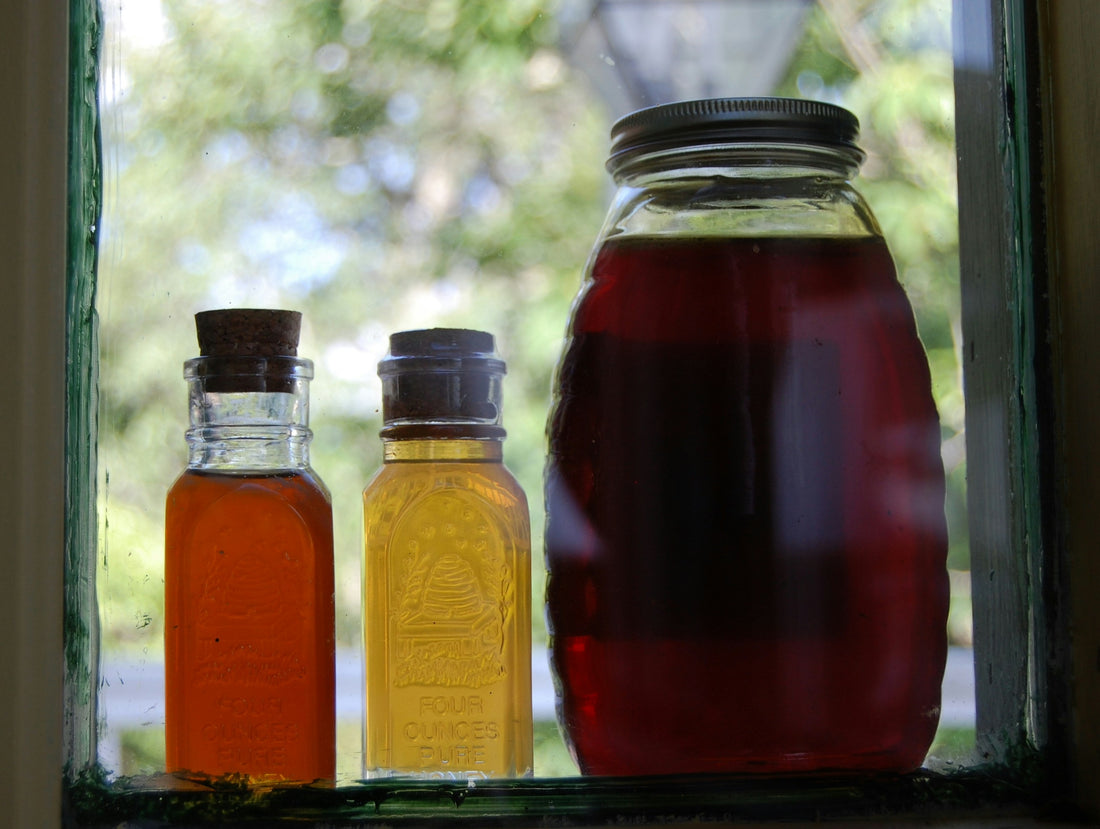Is Lighter or Darker Honey Better?
Honey comes in many varieties, and one of the most obvious differences is its color—ranging from pale gold to deep amber or even darker. If you’ve ever wondered what this color difference means, which color honey is best, and how to choose between light and dark honey, you’re in the right place. Keep reading to find out what influences honey’s color, what it says about its flavor and nutritional content, and ultimately, which honey might be the best fit for you.
What Influences the Color of Honey?
The color of honey is primarily determined by the type of flowers the bees visit to collect nectar. For example, honey made from acacia flowers tends to be lighter, while buckwheat or chestnut flowers produce darker honey. Other factors, like the season, climate, and how the honey is processed, can also impact the final color. However, the main factor is always the source of the nectar.
Light Honey
Typically comes from clover, orange blossom, or sage flowers.
What is light honey used for?
Light honey has a milder, more delicate flavor, making it ideal for teas, toast, or dishes where you don’t want the honey to overpower other ingredients. Its gentle sweetness complements breakfast foods like oatmeal, yogurt, or pancakes, enhancing flavors without being too intense. Light honey is also perfect for salad dressings and light sauces where subtle sweetness is needed. Its versatility in both sweet and savory recipes makes it a go-to choice when you want to add just a hint of natural sweetness without taking over the dish.
Dark Honey
Often comes from flowers like buckwheat, heather, or manuka.
What is dark honey used for?
Dark honey, with its bold and intense flavor, is perfect for recipes that call for a more pronounced sweetness. It's commonly used in marinades, sauces, and hearty baked goods where its depth can shine through. This honey is also great for adding complexity to strong teas or coffee, where lighter honey might get lost. Its richness pairs well with spices like cinnamon and ginger, making it ideal for spiced desserts and savoury dishes alike.
Flavour and Nutritional Differences
Light honey tends to be more subtle and floral, which makes it a popular choice for everyday use. Its flavor is versatile and doesn’t stand out too much, which is perfect for adding a touch of sweetness to foods or drinks without altering the overall flavor profile.
Dark Honey, on the other hand, has a bolder taste and a more complex flavor. It's the kind of honey that can hold its own in strong-flavored dishes, like marinades or sauces. Some people find dark honey to be a bit too strong for sweetening tea, but it works great in cooking or for adding depth to baked goods.
When it comes to nutrition, darker honey generally contains higher levels of antioxidants, vitamins, and minerals. According to research, darker varieties like buckwheat honey have more antioxidants than lighter honey, which can be beneficial for fighting free radicals in the body and boosting overall health. While light honey still contains beneficial compounds, it usually has fewer antioxidants than dark honey.
Health Benefits of Light and Dark Honey
Both light and dark honey offer a variety of health benefits, including antibacterial properties, wound healing, and soothing sore throats. However, dark honey might offer additional benefits due to its higher antioxidant content.
- Dark Honey: Known for its richness in antioxidants, it can provide more protection against oxidative stress, a factor in aging and chronic diseases. Studies have shown that dark honey varieties like buckwheat honey may help improve cardiovascular health and even boost immune function.
- Light Honey: While lighter in flavor and antioxidant content, light honey still carries the same antibacterial and antimicrobial properties as dark honey. It’s also a great natural sweetener for those looking for a healthier alternative to refined sugar.
Is Dark Honey Okay to Eat?
Absolutely! Dark honey is not only okay to eat but can be a fantastic choice, especially if you’re looking for something with a richer flavor and higher nutritional content. Some people mistakenly believe that dark honey has been over-processed or is older, but that’s not the case. Its darker color comes naturally from the type of flowers the bees visit and the compounds in the nectar.
However, it’s essential to make sure you're getting raw or minimally processed honey, whether it’s light or dark. Over-processed honey can lose many of its beneficial properties, like enzymes, vitamins, and antioxidants. So, regardless of color, choose raw honey whenever possible.
Which Honey is Better?
There’s no definitive answer to this question as it depends on what you’re looking for. If you prefer a mild flavor that’s easy to incorporate into various dishes, light honey is the way to go. It’s perfect for sweetening tea or drizzling over yogurt without overwhelming other flavors.
However, if you’re after something more robust, with potentially more health benefits, dark honey is a better choice. Its richer flavor pairs well with bold dishes, and the higher antioxidant content can be a bonus for those looking to boost their nutrient intake.
In the end, both types of honey have their place in a balanced diet, and it often comes down to personal preference.
Conclusion: Choosing the Right Honey for You
Whether you prefer light or dark honey, each brings its unique flavor and health benefits to the table. Light honey offers a delicate sweetness and pairs well with a variety of foods, while dark honey gives you a bold, rich taste packed with antioxidants. The decision between light and dark honey ultimately depends on your taste preferences and how you plan to use it.
Next time you're choosing honey, consider your needs. Are you looking for a versatile, mild honey to sweeten your tea, or do you want honey with a stronger, more complex flavor? There’s no wrong choice. Just make sure to enjoy the natural goodness that honey, in all its varieties, has to offer.
References
Local Hive Honey. The Difference Between Light and Dark Honey. Retrieved from https://localhivehoney.com/blogs/blog/the-difference-between-light-and-dark-honey
Masterclass (2021). Dark Honey vs. Light Honey: The Benefits of Dark Honey. Retrieved from https://www.masterclass.com/articles/dark-honey-guide

